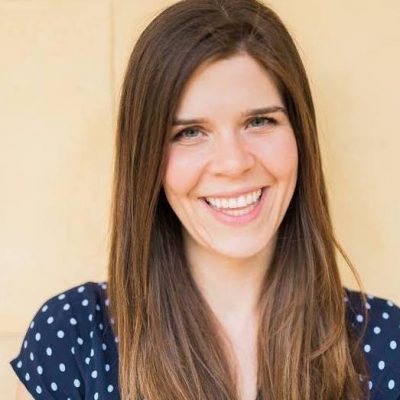Details
Article
Inside of an Altbau in Mitte, Berlin, aspiring Jewish and Muslim writers met last month for Inscribing Plurality, a Landecker Democracy Fellowship Project aimed at pluralizing the public sphere. There—guided by an award-winning author (Saskya Jain), journalists (Mohamed Amjahid and Joe Baur), and a leading international literary agent (Jessica Craig)— they shared poetry, op-eds, and science fiction. Through this encounter with one another and their written work, they shared a vision for a more inclusive European society.
Rising waves of populism and an emboldened, increasingly institutionalized, right -wing across Europe are threatening such inclusive visions. The war in Ukraine has spurred new waves of refugees forced to flee from violence, and forcing European societies to reckon with who they include and exclude. In this socially and politically unsettled era, anti-Semitism and anti-Muslim sentiments are not waning, but rather growing and resulting in deadly attacks.
Inscribing Plurality is a project that empowers Jewish and Muslim writers to democratize the public sphere through their writing.
The so-called “Jewish question” long shaped debates regarding who belongs to Europe. Today, the so-called “Muslim question” has risen alongside of it. In these Yet in such “debates”, both Muslims and Jews are spoken and written about as objects or subjects, rather than empowered as peopleagents who contribute to the making of European societies. As a sociologist and an author, I have focused on rethinking and rewriting the stories of Europe from its margins: shedding light on those who reside in these margins and their transformative potentialities present and past. My current “Freigeist” (free-spirit) fellowship, supported by the Volkswagen Stiftung, flips the narrative that portrays Muslims and Jews as somehow juxtaposed to, or culturally set apart from, Europe in order to argue that both have been central to the formation of European societies. Inscribing Plurality is a project that takes this idea one step further, out of the academy and into mainstream public debate: empowering Jewish and Muslim writers to democratize the public sphere through their writing.
This is no simple feat. Both Muslims and Jews have long faced discrimination across European societies.
Both Muslims and Jews have long faced discrimination across European societies, not only questioned but coded as uncivil. This has taken the form of the headscarf debates that code this worn Muslim symbol as anti-democratic, and debates over the so-called refugee crisis in 2015 shrouded in fears of terrorist infiltration and violence. Enduring anti-Semitic tropes cast Jews as suspect outsiders despite their being part of Europe for over a millennia. And right-wing attacks have centered at once on Jewish and Muslim bodies, often collapsing the two, as seen in the Halle murders in 2019. When the gunman could not penetrate synagogue doors during this attack, he instead targeted people inside of local kebab shops.
Muslim and Jewish voices remain marginalized in Europe’s public sphere…
Although at the center of contention regarding Europe’s geographical and cultural borders, Muslim and Jewish voices remain marginalized in Europe’s public sphere. They are more often spoken or written about, than spoken to, let alone called to speak for themselves. Few individuals are recognized as representatives of these extremely plural groups. And when given a platform from which to write or speak, it is often as just Muslim or just Jewish, rather than an opportunity to articulate complex and layered perspectives.
Here is where Inscribing Plurality comes in. Over our first weekend together, aspiring Muslim and Jewish writers began their work together to bring plural Jewish and Muslim perspectives to bear on the public sphere. These perspectives included: developing a Pakistani sci-fi genre, representing female perspectives of postcolonial and guest worker migration to Europe through fiction and non-fiction, and reflecting on spatial exclusions of minority groups in Berlin, for a speech given to the German Parliament.
There are many ways to respond to the crises of democracy that we face in today’s Europe, and beyond.
There are many ways to respond to the crises of democracy that we face in today’s Europe, and beyond. One is to create spaces that foster democracy: in which we who believe in the value of plural and equitable societies raise our voices, and we, who see ourselves as writers, raise the fine points of our pens against these dangerous tides.
Inscribing Plurality is one such space that I hope will expand through writing that breaks through barriers. It is a space in which to confront questions of religious, racialized, and ethnic exclusions from the margins, by the marginalized. It is a space in which the dominant stereotype that Jews and Muslims are at odds with one another is quickly shattered. And it is a space for hope. In it, we may dare to rewrite the narratives of the societies in which we live: together, with all of our differences, rejecting the enmity and indifference that threaten to divide us.


